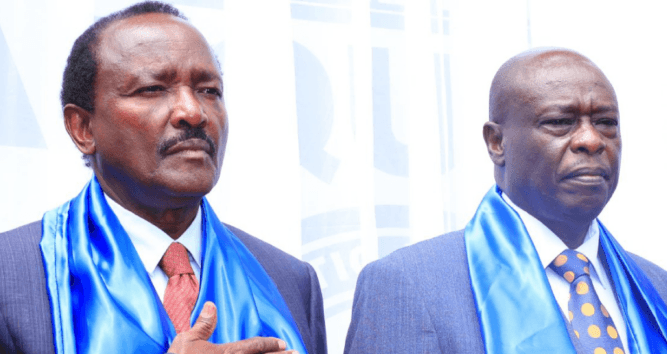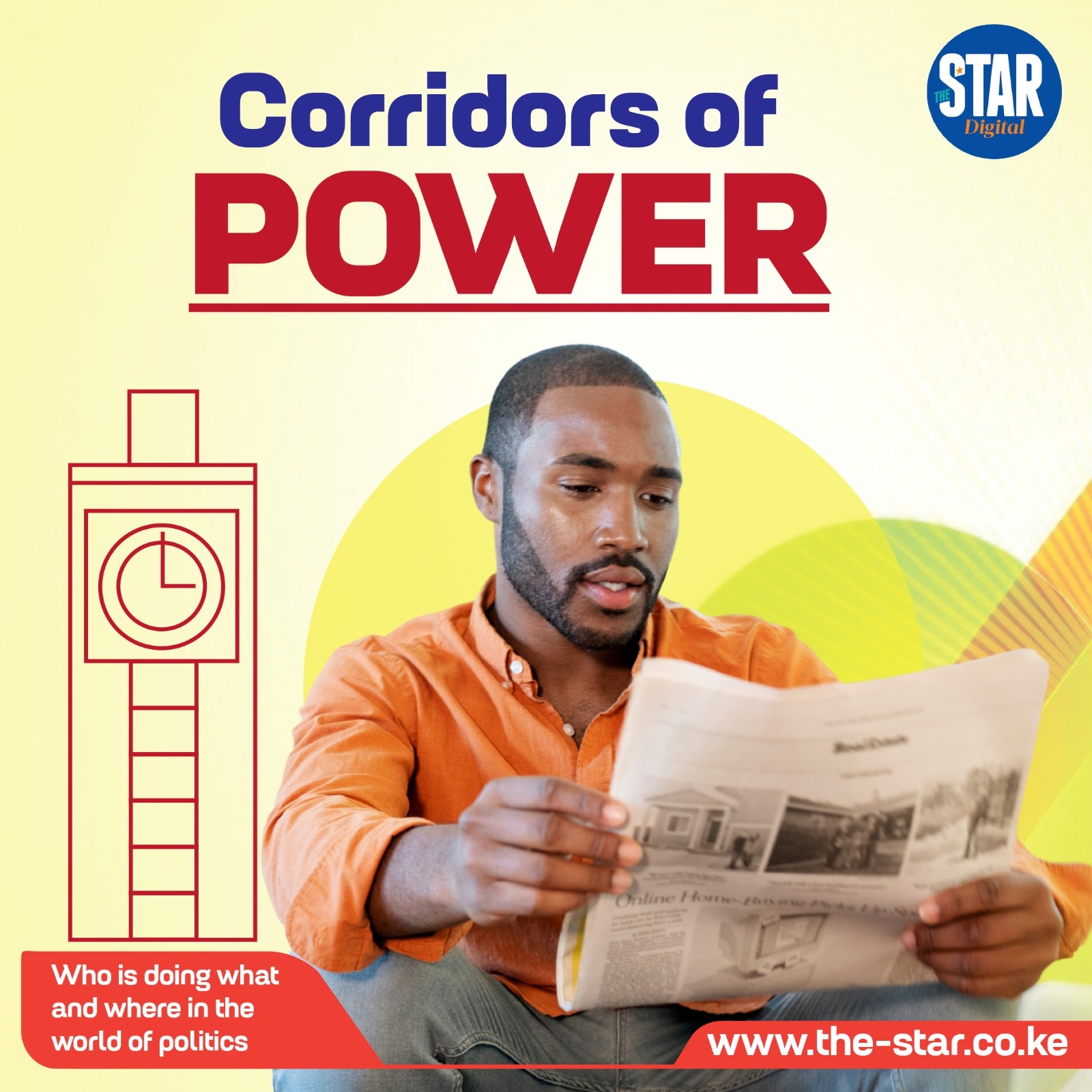The Report of the National Dialogue Committee, rather like the Building Bridges Initiative a couple of years ago, deals with far more than jobs for certain favoured classes of politicians, though I share much of the skepticism about the true thrust of the exercise.
Also it summarises the views on most issues of a large number of people and bodies. Whether this is the best way to proceed with an exercise that involves major changes like amending the constitution is a different matter.
There are problems with the constitution, generally stemming from the rushed, and self-interested changes introduced by the parliamentary select committee at a very late stage in the process of making a new Constitution. I doubt if what we need now is a similar exercise to remove perceived flaws in the document.
My focus here is on some of the committee’s proposed changes to the constitution. We said that full implementation of the BBI proposals would have been necessitated about 78 amendments. This time the total is a bit more modest, about 30 changes.
They range from a few good ideas (or not bad ideas) to the unwise, through the repetitious or redundant.
Election related
Dissatisfaction with the last election lies at the heart of the whole affair. But few changes have been proposed by Nadco on how the constitution organises elections.
One concerns the controversy about the relative roles of the Independent Electoral and Boundaries Commission and its chairperson over announcing the final presidential election result. Nadco proposes that Article 138 be amended to make it clear that the IEBC verifies the result before it is announced. Article 138 now says that the commission is to tally the total, confirm it and announce the result. But it also says the Chair must announce the result.
In the 2022 presidential election case, the Supreme Court found “that the Chairperson cannot arrogate to himself the power to verify and tally the results of a Presidential Election, to the exclusion of the other members of the Commission. Indeed, Article 138 (10) of the Constitution, although the power to declare the result of a Presidential Election after verification and tallying, is vested in the chairperson, he does so only as a delegate of the Commission.”
It is not clear that Nadco’s proposal is actually necessary. The report also proposes amendment of Article 89 to allow Parliament to extend the time for boundary revisions. This is because of the problem that IEBC has been unable to meet the existing deadline, because it lacks commissioners.
I have said previously that the situation cannot be that the review can’t happen because the deadline has passed; that would be ridiculous. It’s a bit of a mess but necessity dictates that the review must go ahead. Maybe the approval should lie with the courts not Parliament. In fact, the courts could already hold that the “doctrine of necessity” applies, and approve an extension.
The Report proposes that Article 140(2) is amended to allow the Supreme Court 28 instead of 14 days to decide on a presidential election petition. Certainly the court has struggled to fit within its existing deadline.
Then the proposal is for IEBC to “consider” staggering election , to change the Constitution so that all are not on the same day. It is true that to have six elections on one day is unusual and very challenging. A decision would be quite complex. Should we have county elections
(Governor and MCAs) on one day and national elections (President and Parliament – four elections) on another? Clearly the drafters intended that President and Parliament should be elected on the same day, presumably to minimise the risk of conflicts. Should we reconsider this?
There is a proposal to extend the Senate’s term to seven years. This is supposed to make the Senate more independent and strengthen its role in law making, presumably by virtue of its accumulated experience. It would still deal only with law concerning counties.
It would also mean that every seven years the country would have the expense of another election. (The senatorial elections would coincide with those of other bodies only once every 35 years).
Although in several countries second houses do have longer terms, it is not clear that this makes any particular sense here. And we would need to consider carefully whether we want the possibility of the Senate being of a different political persuasion from the National Assembly.
The gender rule
The report proposes alternatives for dealing with the gender issue in the National Assembly. The first would be to import the county assembly approach: extra women from party lists to achieve the “not more than two thirds” rule.
They add a new element to identifying the individuals: preference would be given to candidates who stood for election for a constituency, and within that those who received the most votes. This would require repealing 34(9) of the
Elections Act: “The party list shall not contain a name of a candidate nominated for an election.” The alternative would be having twice as many county women reps as now, plus a top up if necessary. It might well not be. Ninety-four county women plus the same percentage of constituency members as now (this would be 29, plus five list “appointed” members) would total 1,286.7 percent of the whole.
But why 94 women county reps? Their roles are already not so clear. And their existence distorts the relationship between numbers of votes and seats in Parliament: Twice as many would have twice the impact.
Parties
Weakness of our party system is well-known, and the rule that elected people lose their seats if they change parties seems a dead letter (though cases may yet to come to court under this Parliament).
Nadco recommends that the principle of party discipline be included , presumably in Article. True, this does not use the word, but would including it really make any difference?
It wants procedures for resigning or being deregistered (includes being sacked) from a political party included in the constitution. These are already spelled out in the law. The Constitution, it says, should provide that, once a person is deregistered from a party, they lose any post, elected or appointed, which they hold by virtue of that party membership.
I am not sure that it would be easy to prove that anyone holding an appointed position does so by virtue of their party membership. People will argue, “I was appointed for my personal qualities, not because I was a member of a certain party”. Even some people elected might be able to prove this.
They also want Article 181 amended to include being deregistered from a party as a ground for a governor’s impeachment. But if loss of seat is automatic then this is redundant. But maybe that points to a difficulty about these provisions; who is to take the steps to get people sacked from their posts? It seems that parties are reluctant to push for this.
A rather odd proposal is to amend the Constitution to recognise people who represent Kenya in international or regional bodies (notably the East African Legislative Assembly). Exactly what this means is obscure.
CDF etc.
The Constituency Development Fund (original version) was declared unconstitutional by the courts for reasons that largely apply equally to the rebranded NG-CDF. Unfortunately, a challenge to the Affirmative Action Fund failed (though it is equally objectionable). Nadco wants these entrenched in the Constitution.
The main objection has been that it is the role of Parliament to oversee the Executive. To fund the members to carry out executive functions is to put them in a situation of conflict of interest.
With the recent amendment to the NG-CDF Act, MPs are made even more clearly instruments of the Executive; this is completely incompatible with being overseers of that Executive.
The Senate Oversight Fund is another oddity: senators want money paid to or through individual senators to do something that is the function of the Senate as an institution.















![[PHOTOS] Ruto launches Rironi-Mau Summit road](/_next/image?url=https%3A%2F%2Fcdn.radioafrica.digital%2Fimage%2F2025%2F11%2F6f6601a6-9bec-4bfc-932e-635b7982daf2.jpg&w=3840&q=100)

